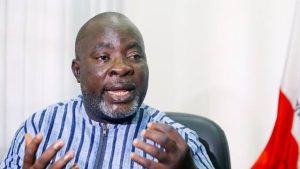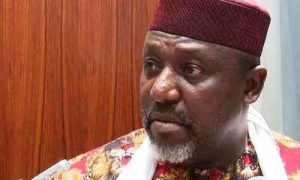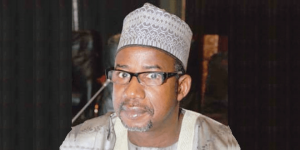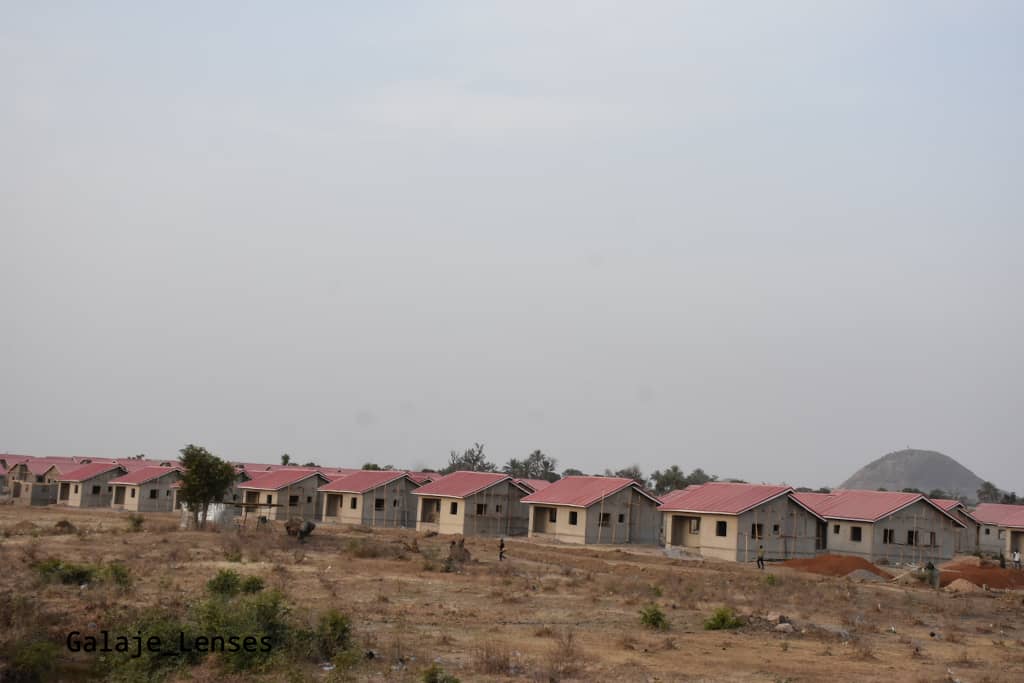By Olu Tayo
Last week, the price of crude oil rallied to $66 per barrel, the highest in 13 months. This was after oil price sank to sub-zero level in the wake of the COVID-19 pandemic in 2020.
Ordinarily, for a country like Nigeria that is heavily dependent on revenue from oil, the price rally ought to be good news as it portends more money for the government to provide social amenities for the welfare of the citizens.
But the cheery news of oil price rally is dampened by the prospect of a rise in the pump price of petrol.
In March 2020, the Federal Government finally took the bull by the horns and deregulated the downstream by taking advantage of the low oil prices induced by the pandemic.
The Petroleum Products Marketing Company (PPMC), a subsidiary of the Nigerian National Petroleum Corporation (NNPC), had announced that petrol prices would henceforth be determined by market forces. It had explained that the new price regime with its cost-reflective nature was expected to help to improve product availability and attract investments to the sector as marketers now have increased margin.
Since then, the Petroleum Product Pricing Regulatory Authority (PPPRA) has been giving monthly guidance on petrol prices through price modulation method, meaning that when crude price goes up, petrol price would go up, and when it comes down, petrol price would follow suit.
Owing to this, during the launch of the Nigerian Upstream Cost Optimisation Programme (NUCOP) recently, both the Minister of State for Petroleum Resources, Chief Timipre Sylva, and the Group Managing Director of NNPC, Mallam Mele Kyari, had hinted at the prospect of a rise in the pump price of petrol in the country in line with the deregulation regime in operation in the downstream, following the rise in the price of crude oil.
Since then, the leadership of organised labour has been beating drums of war, contending that a pump price increase would impose more hardship on Nigerians who are already battling the effect of a sluggish economy.
Deregulation of the downstream and pump price increase have been very testy issues that have generated a lot of conflict between the government and labour for close to two decades.
Indeed, since 2004 when the Federal Government started the policy of selling the crude oil earmarked for local refining/consumption at international price, it created a situation where the landing price of petroleum products was higher than the regulated pump price of petroleum products in the country.
The old system where crude oil earmarked for local refining/consumption was sold to the NNPC at a subsidised rate was able to take care of price differential between landing cost and regulated pump price.
With the new policy, a system of subsidy payment was introduced to take care of the price differential.
But over time, the subsidy system became cumbersome and the federal government began to find it unwieldy and unsustainable.
For instance, the Federal Government had disclosed that the nation spent N10. 413 trillion on fuel subsidy between 2006 and 2019, even as the country consistently grappled with low revenue generation over same period.
The various attempts to end the subsidy regime by deregulating the downstream became a constant subject of bitter conflicts between the government and labour sometimes resulting in debilitating strikes.
Therefore, with the current rise in the price of crude oil, it is inevitable that the price of petrol would go up in the local market.
More so when there is no provision in the 2021 Appropriation Act for subsidy payment. The deregulation of the downstream is supposed to bring about some sort of liberalisation of the sector which would make it possible for all petroleum products marketers to source their products from anywhere and sell at any price dictated by prevailing market forces.
The competition arising from that would have helped to force pump prices down to the benefit of the citizens.
But the scarcity of foreign exchange has made it difficult for the marketers to import products, thereby making NNPC the sole importer in keeping with its statutory role as marketer of last resort.
With the agitation of labour to roll back the deregulation, NNPC is inadvertently being made the fall guy to absorb the cost of the price differential between landing cost and pump price.
This would put NNPC in a very bad spot financially and eventually lead to a situation where it would be difficult to further import products. The obvious implication of that is fuel scarcity and the return of fuel queues.
The same people who are resisting the deregulation would be the same people who would turn around to castigate NNPC for not supplying enough fuel to guarantee zero fuel queues and for not making a profit at the end of its financial year.
To analysts at CSL Stockbrokers, the removal of the subsidy on petrol remains a critical free-market reform.
“In our view, and we believe it is beneficial to the finances of the government and the overall economy,” the Lagos-based firm added.
To the Chief Executive Officer of Financial Derivatives Company Limited, Mr. Bismarck Rewane, the removal of subsidy would boost investments in the downstream sector of the oil and gas industry.
Rewane said subsidy removal would encourage investments in private refineries such as the Dangote Refinery, and the BUA Refinery springing up in the country.
According to him, petrol subsidy would free revenue for the government to provide essential services and at the same time boost investments in the downstream sector.
“Investments will increase. It will boost investments in private refineries such as Dangote Refinery, while those who will buy our dilapidated refineries will also come,” he added.
The Chairman of Fidelity Bank Plc and former Managing Director of the Asset Management Corporation of Nigeria (AMCON), Mr. Mustapha Chike-Obi, said Nigeria can no longer afford the subsidies that it had been paying.
Also, the Chairman of the Major Oil Marketers Association of Nigeria (MOMAN), Mr. Adetunji Oyebanji, said fuel subsidy removal would give operators the opportunity to recover their costs, adding that it would in the long run, encourage investment and create jobs.
The Minister of Finance, Budget and National Planning, Mrs. Zainab Ahmed, believes that incurring further costs on under-recovery has been stopped permanently.
According to her, “This we have been able to do by adopting a price modulation mechanism and the government has removed fuel subsidy provision from its revised 2020 budget and also from the Medium Term Economic Framework (MTEF) for 2021-2023. We don’t have plans to incur any expenditure on fuel subsidy.
“What that means is that the price of refined products (petrol) will be determined by the global price of crude oil, so the price will keep changing according to how the global market operates.”
Sylva said Nigeria was no longer in the business of fixing fuel prices, adding that global oil price crash had made removing the subsidies inevitable.
“It is about the survival of our country. There are certain things that the country can ill-afford at this time,” he said.
Therefore, labour must learn to be objective in its resistance to the downstream sector reforms meant to eradicate the distortions in the market which have been responsible for bouts of scarcity and lack of investments in the sector.
If the labour leaders spearheading the resistance to deregulation are fair to themselves, they would recognise that the deregulation has largely stabilised petroleum products supply over this past year.
Once the foreign exchange issue that has made it difficult for major and independent marketers to engage in importation of petroleum products is resolved, the other gains of deregulation will kick in and Nigerians will be better for it.
One of the key arguments of labour is that if the refineries were in operation, it would help reduce the prices of products and mitigate the hardship that deregulation would impose. But the reality on ground does not support that.
The revamping of the refineries will only result in marginal decrease in the pump price of petroleum products since the only cost element it would affect is the freight cost. Since the refineries would pay international price for crude oil, the benefit from local refining in terms of products pricing would be marginal.
The earlier the labour leaders understand this and allow the deregulation process to go on unhindered, the better for Nigeria and Nigerians.
If they are in doubt, they should ask the former Edo State Governor, Adams Oshiomhole, who made a career out of his opposition to deregulation for over 10 years only to turn around to become an apostle of deregulation as a governor.
The market stabilisation that has been brought about by the past one year of deregulation should be enough to assure labour that full deregulation is the way to go if Nigerians are to enjoy the full benefits of their hydrocarbon wealth. Resisting deregulation under the guise of fighting for the welfare of Nigerians is only an attempt to hoodwink Nigerians into believing that they can eat their cake and still have it.
- Tayo is a Lagos-based oil sector analyst






